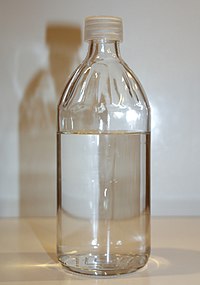
Photo from wikipedia
Erythritol is a 4-carbon polyol produced with the aid of microbes in presence of hyper-osmotic stress. It is the most effective sugar alcohol that is produced predominantly by fermentation. In… Click to show full abstract
Erythritol is a 4-carbon polyol produced with the aid of microbes in presence of hyper-osmotic stress. It is the most effective sugar alcohol that is produced predominantly by fermentation. In comparison to various polyols, it has many precise functions and is used as a flavor enhancer, sequestrant, humectant, nutritive sweetener, stabilizer, formulation aid, thickener, and a texturizer. Erythritol production is a common trait in a number of the yeast genera viz., Trigonopsis, Candida, Pichia, Moniliella, Yarrowia, Pseudozyma, Trichosporonoides, Aureobasidium, and Trichoderma. Extensive work has been carried out on the biological production of erythritol through Yarrowia, Moniliella, Candida, and other yeast strains, and numerous strategies used to improve erythritol productivity through mutagenesis and genetic engineering are discussed in this review.
Journal Title: FEMS microbiology letters
Year Published: 2022
Link to full text (if available)
Share on Social Media: Sign Up to like & get
recommendations!